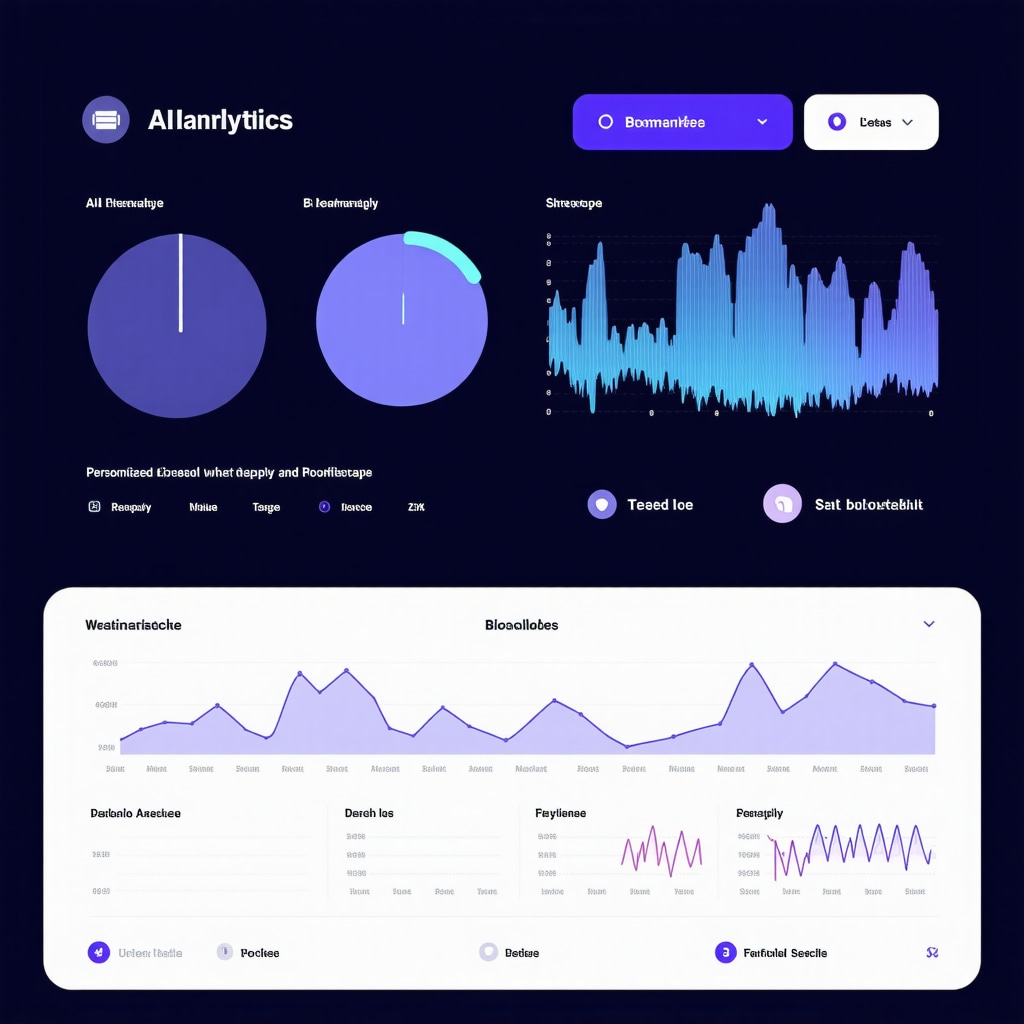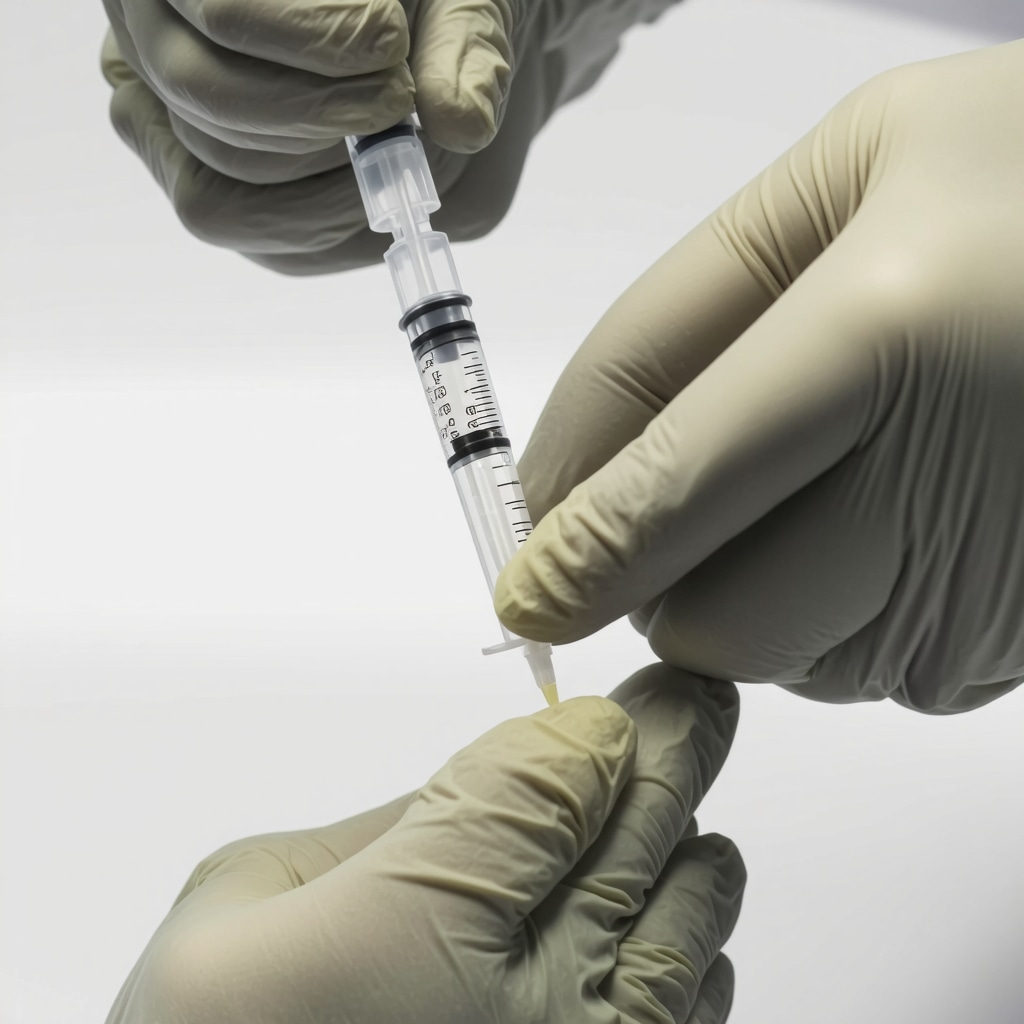Understanding the Nuances of Weight Loss Injections in Modern Obesity Management
Weight loss injections and injectables represent a transformative frontier in medical fat loss strategies, offering targeted biochemical pathways to enhance metabolic control and appetite regulation. Their integration into clinical practice demands not only an appreciation of pharmacodynamics but also a rigorous adherence to safety protocols to optimize outcomes. As obesity continues to pose a complex global health challenge, injectable therapies, particularly GLP-1 receptor agonists like semaglutide and tirzepatide, provide promising adjuncts to lifestyle modifications, yet their effective use hinges on meticulous patient selection and monitoring.
Advanced Safety Strategies for Optimal Weight Loss Injection Use
Ensuring the safety and efficacy of weight loss injectables involves a multifaceted approach encompassing pre-treatment evaluation, dosing customization, and vigilant adverse effect surveillance. Clinicians must conduct comprehensive metabolic and cardiovascular assessments to identify contraindications and tailor injection regimens that minimize risks such as gastrointestinal distress or rare pancreatitis occurrences. Integrating patient education on injection technique, storage, and adherence enhances therapeutic success while mitigating complications like site infections or improper dosing.
How Can Patients Navigate the Complexities of Injectable Weight Loss Therapies Safely?
Patients embarking on injectable weight loss therapies face a landscape of diverse medications and protocols. To navigate safely, they should engage with healthcare providers who specialize in obesity medicine to receive individualized treatment plans that align with their health status and weight loss goals. Understanding the importance of gradual dose escalation, recognizing early signs of adverse reactions, and maintaining regular follow-ups are critical. Additionally, patients should be informed about the interaction of these injectables with concomitant medications and underlying conditions to prevent unforeseen complications.
Leveraging Clinical Evidence for Informed Injectable Weight Loss Decisions
Emerging clinical data underscore the nuanced balance between the potent efficacy of injectable weight loss treatments and their safety profiles. Recent studies published in The New England Journal of Medicine highlight the differential benefits and risks of GLP-1 receptor agonists, emphasizing patient-specific risk stratification to maximize benefit. Such evidence-based insights empower clinicians to refine injectable protocols and educate patients on realistic expectations while vigilantly monitoring for adverse events.
Integrating Injectable Therapies into Holistic, Doctor-Guided Weight Loss Plans
Injectables serve as one component within comprehensive, medically supervised weight loss plans that encompass dietary, behavioral, and pharmacological elements. Personalized plans developed by specialists ensure that weight loss injections complement other therapeutic modalities, fostering sustainable fat loss with minimized risks. For detailed guidance, explore doctor-prescribed weight loss plans tailored to your needs and learn how injectable treatments can be safely integrated.
Expert Guidance and Next Steps in Injectable Weight Loss Therapy
For those considering or currently using weight loss injections, continuous education and professional support are paramount. Accessing expert insights and the latest clinical updates can significantly enhance safety and efficacy. We invite healthcare professionals and patients alike to contribute their experiences and knowledge to the ongoing discourse on injectable weight loss treatment at our expert forum, fostering a community dedicated to advancing safe, effective obesity management strategies.
Exploring the Pharmacokinetics and Patient Variability in Injectable Weight Loss Treatments
Injectable weight loss medications exhibit complex pharmacokinetic profiles that significantly influence their efficacy and safety. Variability in absorption rates, metabolism, and elimination pathways among individuals often necessitates personalized dosing strategies. Factors such as age, renal function, hepatic metabolism, and genetic polymorphisms can modulate drug bioavailability and response. Clinicians must integrate these pharmacological nuances into treatment plans to optimize therapeutic outcomes and minimize adverse events, emphasizing the importance of precision medicine in obesity management.
Addressing Common Misconceptions About Weight Loss Injections and Their Role in Long-Term Fat Loss
Despite the clinical promise of injectable therapies, several misconceptions persist among patients and some healthcare providers. A prevalent misunderstanding is the perception of these medications as quick fixes rather than components of a broader lifestyle intervention. Additionally, concerns about dependency and side effects often overshadow their safety when properly managed. Educating patients on the integrative role of injectables within comprehensive, doctor-guided weight loss plans is essential to foster adherence and realistic expectations, ensuring sustained benefits beyond the pharmacological effects.
What Are the Emerging Innovations in Injectable Weight Loss Medications That Could Revolutionize Obesity Treatment?
Recent advancements are expanding the therapeutic arsenal beyond GLP-1 receptor agonists, incorporating dual and triple receptor agonists that target multiple metabolic pathways simultaneously. These novel agents aim to enhance satiety, increase energy expenditure, and improve glycemic control more effectively. Ongoing clinical trials are evaluating these compounds’ safety and efficacy, potentially offering superior fat loss outcomes with refined side effect profiles. Staying abreast of these innovations is critical for clinicians and patients seeking cutting-edge options in obesity management.
For a comprehensive comparison of current leading GLP-1 medications, see our detailed analysis in Semaglutide vs Tirzepatide: The Ultimate Weight Loss Showdown.
Enhancing Patient Outcomes Through Telemedicine-Enabled Injectable Weight Loss Care
Telemedicine has transformed access to prescription weight loss medications, enabling timely consultations, personalized treatment adjustments, and adherence monitoring without geographic constraints. This modality supports ongoing patient engagement, crucial for managing the titration and side effect profiles of injectable therapies. Providers can leverage digital tools to deliver education, track progress, and intervene early upon adverse symptoms, thereby optimizing safety and effectiveness. Integrating telemedicine into weight loss injection programs represents a forward-thinking approach aligned with contemporary healthcare delivery trends.
Leveraging Evidence-Based Guidelines to Inform Injectable Weight Loss Therapy Selection and Monitoring
Authority from institutions such as the New England Journal of Medicine underlines the importance of risk stratification and individualized therapy algorithms in prescribing injectable weight loss medications. These guidelines recommend comprehensive baseline evaluations, structured dose escalation, and longitudinal follow-up to detect and manage side effects promptly. Adherence to such protocols not only enhances patient safety but also maximizes fat loss efficacy, supporting sustainable improvements in metabolic health.
We encourage healthcare professionals and patients to share experiences and insights on injectable weight loss therapies at our expert forum, fostering a collaborative environment dedicated to advancing safe and effective obesity treatments.
Precision Medicine: Tailoring Injectable Weight Loss Treatments to Complex Patient Phenotypes
Injectable weight loss therapies, particularly GLP-1 receptor agonists and emerging dual-agonists, present a remarkable opportunity to individualize obesity treatment. However, the heterogeneity of patient metabolic profiles demands an advanced understanding of precision medicine principles. This approach incorporates genetic, epigenetic, and phenotypic data to optimize dosing regimens and predict therapeutic response. For example, genetic polymorphisms affecting GLP-1 receptor expression or downstream signaling pathways can alter drug efficacy, necessitating genotype-informed adjustments. Moreover, metabolic comorbidities such as type 2 diabetes, hepatic steatosis, or cardiovascular disease complicate pharmacodynamics and pharmacokinetics, and require integrated biomarker monitoring to fine-tune therapy.
Emerging tools like pharmacogenomic panels and continuous glucose monitoring (CGM) systems enable clinicians to capture real-time metabolic fluctuations and drug interactions, facilitating dynamic dose modulation. This level of personalization aims to maximize efficacy while minimizing adverse effects, such as nausea or pancreatitis, which may be more prevalent in certain genetic or clinical subpopulations.
How Can Clinicians Implement Pharmacogenomic Data to Enhance Injectable Weight Loss Therapy Outcomes?
Integrating pharmacogenomic data into clinical practice begins with identifying patients who would benefit from testing, such as those with atypical responses or adverse events. Next, interpreting variants in genes like GLP1R or CYP450 enzymes informs dosing strategies and drug selection. Collaborating with genetic counselors and utilizing decision-support software can streamline this process. Published guidelines from the Pharmacogenomics Knowledgebase (PharmGKB) provide curated evidence linking genetic variants to drug response, empowering clinicians with actionable insights. Ultimately, pharmacogenomic-informed therapy fosters more precise, effective, and safer injectable weight loss treatments.
Advanced Monitoring Technologies: Enhancing Safety and Efficacy in Injectable Weight Loss Regimens
Beyond pharmacogenomics, the integration of wearable biosensors and digital health platforms revolutionizes patient monitoring during injectable weight loss therapy. Devices capable of tracking heart rate variability, gastrointestinal motility, and glucose variability provide objective data to detect early signs of adverse effects or suboptimal dosing. For instance, emerging evidence suggests that continuous monitoring of gastric emptying rates could predict gastrointestinal side effects commonly associated with GLP-1 receptor agonists, enabling preemptive dose adjustments.
Digital platforms also facilitate remote adherence tracking and symptom reporting, allowing clinicians to intervene promptly. These technologies not only improve safety but also support sustained behavioral modifications by providing patients with real-time feedback, reinforcing the holistic nature of injectable weight loss therapy.

Addressing Polypharmacy and Drug-Drug Interactions in Injectable Weight Loss Protocols
Patients with obesity often present with multiple comorbidities requiring complex medication regimens, heightening the risk of drug-drug interactions when initiating injectable weight loss therapies. Understanding the cytochrome P450 (CYP) metabolic pathways and transporter proteins involved in GLP-1 receptor agonist metabolism is crucial to anticipate and mitigate potential interactions. For example, concomitant use of CYP3A4 inducers or inhibitors may alter drug plasma levels, affecting both efficacy and toxicity.
Moreover, injectable agents can influence gastric motility, potentially impacting the absorption of oral medications. This necessitates careful timing and monitoring of co-administered drugs, especially those with narrow therapeutic windows such as anticoagulants or antiepileptics. Multidisciplinary collaboration involving pharmacists and specialists is essential to develop comprehensive medication management plans, ensuring patient safety in complex therapeutic landscapes.
Emerging Biomarkers for Predicting Response and Tailoring Injectable Weight Loss Treatments
Recent research focuses on identifying biomarkers that predict individual responsiveness to injectable weight loss agents, thereby refining patient selection and therapy customization. Biomarkers such as fasting plasma leptin, adiponectin levels, and gut microbiota composition have shown promise in correlating with weight loss magnitude and metabolic improvements. For instance, a higher baseline leptin level may indicate leptin resistance, suggesting a need for combination therapies to overcome this hurdle.
Additionally, inflammatory markers like C-reactive protein (CRP) and interleukin-6 (IL-6) can reflect systemic inflammation status, influencing drug metabolism and efficacy. Integrating biomarker panels into routine clinical evaluations offers a sophisticated framework to predict treatment trajectories and optimize outcomes.
For clinicians keen on advancing their expertise, staying updated through resources such as the International Journal of Obesity provides in-depth analyses of biomarker-driven approaches in obesity pharmacotherapy.
Engage with our expert community to share experiences and insights on optimizing injectable weight loss therapies through precision medicine and advanced monitoring at our expert forum.
Harnessing Artificial Intelligence to Refine Injectable Weight Loss Strategies
The convergence of artificial intelligence (AI) with obesity pharmacotherapy heralds a new epoch in precision medicine. Machine learning algorithms can analyze multidimensional patient data—including genomics, metabolomics, and behavioral patterns—to predict responsiveness to injectable weight loss agents with unprecedented accuracy. This enables clinicians to tailor treatment regimens dynamically, optimizing efficacy while proactively mitigating adverse effects.
AI-driven predictive models also facilitate early identification of non-responders, allowing timely therapeutic pivots and resource allocation. Furthermore, integration of AI-powered decision-support tools within electronic health records enhances clinical workflow efficiency and standardizes best practice adherence.
What Are the Latest Biomarkers and AI Tools Revolutionizing Injectable Weight Loss Treatment Personalization?
Recent advances spotlight novel biomarkers such as fibroblast growth factor 21 (FGF21), microRNAs, and metabolite signatures that correlate strongly with metabolic improvements and weight loss trajectories under GLP-1 receptor agonists. Coupled with AI algorithms, these biomarkers enable a granular stratification of patient phenotypes beyond traditional clinical parameters.
For instance, AI-enabled platforms can synthesize continuous glucose monitoring data, pharmacogenomic profiles, and inflammatory marker levels to generate individualized dosing schedules and predict side effect risks in near real-time. Such integration fosters a proactive, rather than reactive, management paradigm.
Leading research published by the Nature Medicine journal elucidates the transformative impact of AI and biomarkers in obesity therapeutics, underscoring their potential to redefine injectable weight loss treatment frameworks.
Implementing Integrated Digital Health Ecosystems to Optimize Injectable Weight Loss Outcomes
Beyond isolated technological tools, the establishment of comprehensive digital health ecosystems—including patient portals, wearable biosensors, and telemedicine platforms—enables continuous, bidirectional communication between patients and providers. This ecosystem supports adaptive treatment strategies responsive to evolving patient physiology and lifestyle factors.
Such systems can incorporate gamification and behavioral nudges to bolster adherence and lifestyle modifications synergistic with injectable therapies. Moreover, real-world data collected through these platforms contribute to post-marketing surveillance and the refinement of clinical guidelines.

Advanced Considerations for Addressing Immunogenicity and Long-Term Safety in Injectable Therapies
While injectable weight loss agents have demonstrated favorable safety profiles, immunogenicity remains a critical consideration, especially with prolonged use and emerging multi-agonist molecules. Anti-drug antibody formation can attenuate efficacy or precipitate hypersensitivity reactions, necessitating vigilant monitoring.
Innovative assay techniques now enable early detection of immunogenic responses, allowing clinicians to adjust therapies preemptively. Additionally, longitudinal registries tracking patient outcomes provide invaluable data on rare adverse events and inform risk mitigation strategies.
Engage with Advanced Insights and Join the Forefront of Injectable Weight Loss Therapy Innovation
Clinicians and researchers are invited to deepen their expertise by exploring cutting-edge biomarker research and AI applications in obesity therapeutics. Engage with interdisciplinary forums and contribute to evolving best practices that prioritize personalized, safe, and effective injectable weight loss treatment.
Visit our expert forum to connect with specialists pioneering these innovations and access exclusive resources tailored to advanced injectable weight loss care.
Expert Insights & Advanced Considerations
Tailoring Injectable Therapies Through Precision Medicine Enhances Outcomes
Injectable weight loss treatments benefit profoundly from individualized approaches incorporating pharmacogenomic data and biomarker profiling. Recognizing patient-specific genetic variants and metabolic phenotypes allows clinicians to optimize dosing regimens, anticipate side effects, and improve therapeutic efficacy, moving beyond one-size-fits-all protocols.
Integrating Digital Health Technologies is Critical for Real-Time Monitoring
Wearable biosensors, continuous glucose monitoring, and telemedicine platforms create a dynamic feedback loop that empowers both patients and providers. This integration enhances adherence, early detection of adverse events, and personalized dose adjustments, ultimately promoting safer and more effective injectable weight loss therapy management.
Multidisciplinary Collaboration Mitigates Polypharmacy Risks in Complex Patients
Obesity patients often require multiple medications, raising the potential for drug-drug interactions with injectables. Coordinated care involving pharmacists, endocrinologists, and obesity specialists ensures comprehensive medication reviews, timely adjustments, and patient education to minimize adverse interactions and maximize fat loss benefits.
Emerging Multi-Agonist Injectables Offer Promising Therapeutic Advances
Next-generation injectable agents targeting multiple metabolic pathways simultaneously—such as dual and triple receptor agonists—show potential for superior weight loss and metabolic improvements. Clinicians should stay informed on ongoing clinical trials and evolving safety data to leverage these innovations responsibly.
Artificial Intelligence Is Revolutionizing Injectable Weight Loss Strategy Personalization
AI-powered platforms synthesize complex datasets including genomics, metabolomics, and behavioral data to predict patient responses and optimize individualized treatment plans. This technology supports proactive management, enabling timely therapeutic pivots and enhancing overall efficacy and safety in injectable obesity therapies.
Curated Expert Resources
- New England Journal of Medicine (NEJM): Provides authoritative peer-reviewed research and guidelines on GLP-1 receptor agonists and injectable weight loss therapies, essential for evidence-based clinical decision-making (NEJM Article on Obesity Pharmacotherapy).
- Pharmacogenomics Knowledgebase (PharmGKB): Offers curated genomic data linking genetic variants to drug responses, facilitating precision medicine approaches in injectable weight loss treatments (PharmGKB Website).
- International Journal of Obesity: Features in-depth analyses on biomarkers and obesity pharmacotherapy, advancing understanding of personalized injectable treatment strategies (Biomarker-Driven Obesity Treatment Review).
- Nature Medicine: Publishes cutting-edge research on AI applications and biomarker integration in obesity therapeutics, highlighting transformative innovations in injectable weight loss care (AI and Biomarkers in Obesity Therapeutics).
- LossWeight4All Expert Forum: A collaborative platform where clinicians and patients share insights, experiences, and latest updates on injectable weight loss therapies, fostering community-driven advancements (Join the Forum).
Final Expert Perspective
The evolution of injectable weight loss therapies represents a convergence of pharmacology, precision medicine, and digital health innovation. Mastery of these advanced concepts—from pharmacogenomics and biomarker utilization to AI-driven decision support and integrated telemedicine—empowers clinicians to deliver personalized, safe, and effective obesity care. Equally, informed patients benefit from tailored treatment plans embedded within multidisciplinary frameworks, optimizing long-term fat loss success.
As the injectable weight loss landscape continues to advance rapidly, ongoing engagement with expert communities and authoritative resources remains indispensable. We encourage healthcare professionals and patients alike to deepen their expertise and participate actively in shaping the future of obesity management by visiting our expert forum and exploring comprehensive, doctor-guided weight loss plans available at LossWeight4All.
